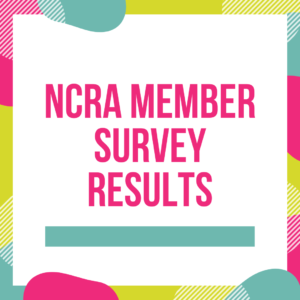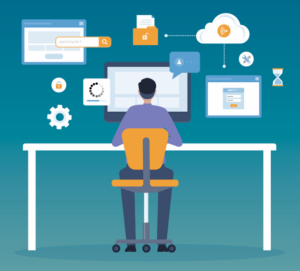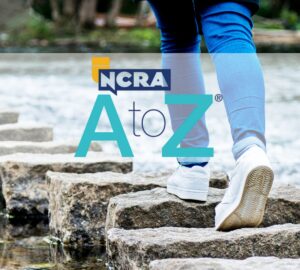Predicting the future is notoriously difficult, but several people look into the future to see how eDiscovery and paperless transcripts will change the legal field.
Virtually every new leap forward in technology seems to provide opportunities for court reporting firms to diversify and enhance both the services they provide clients and their own income streams.
The rise of videotape and, later, digital video led to legal videography, the introduction of email and electronic documents begat eTranscripts and online repositories, and the advent of broadband triggered moves into conference hosting, remote depositions, and streaming services.
But the latest major tech development — the exponential growth of data in business over the past decade as well as the introduction of new tools to search and analyze all that content — is spurring a an interesting new debate within the court reporters community and the legal industry as a whole.
Is eDiscovery, which is the use of software to search through data for evidence that can be introduced in legal proceedings, yet another new field for reporting firms looking to boost revenue?
Or is something controversial that court reporting agencies would be wise to stay away from, at least for the time being?
WHAT IS eDISCOVERY
According to the technology market research firm, the Radicati Group, based in Palo Alto, Calif., eDiscovery is defined as a set of processes for the identification, preservation, collection, processing, review, analysis, and production of Electronic Stored Information (ESI) for civil or criminal litigation procedures and/or to satisfy government investigations.
That ESI can include email, documents, images, databases, transcripts, audio files, websites, computer applications, and more that is stored in databases, websites, file stores, the cloud and individual devices such as computers, laptops and smartphones.
The Radicati Group predicts the market for eDiscovery software will rise 24 percent annually to nearly $4 billion in the U.S. by 2018. And that’s just the software tools alone — there are billions and billions more expected to be spent by law firms and their clients on eDiscovery consultants and services.
Those kinds of multi-billion dollar projections have triggered a bit of a gold-rush mentality in the legal tech and legal support industries when it comes to eDiscovery.
Mason Farmani, managing partner and Chief Operating Officer of Los Angeles-headquartered Barkley Court Reporters, regularly attends legal tech conferences across the country. He says that while Barkley is often the only court reporting firm in attendance, every other company there seems to be showcasing some form of eDiscovery service.
Though it may look like a potentially solid new revenue stream for reporting firms, Farmani cautions that starting up an eDiscovery business from scratch would be a daunting challenge.
“It’s not an easy business to understand, and there’s lot of competition already in the space,” Farmani says. “You also need to realize eDiscovery is a very subjective kind of service and one that you may not have a lot of control over as a court reporting firm owner — if something goes south, then your whole company reputation could be at stake.”
eDiscovery will not be an easy addition for most court reporting businesses, agrees based attorney Shawn Kennedy, the CEO of eDepoze, of Kansas City.
“There are eDiscovery vendors already geared to large practices and ones that primarily deal with smaller law firms, so it’s a very well-established, mature industry,” says Kennedy, who founded eDepoze in 2013 to provide a software platform that allows attorneys to use e-documents during parts of the litigation process that traditionally have been paper-intensive, including the introduction of exhibits during the deposition process. “It’s unlikely that a court reporting firm that’s decided to become a new vendor will be given a law firm’s eDiscovery business over someone who’s been engaged in that field for years and is much more established.”
In addition to being a crowded market, Kennedy and others note that eDiscovery requires a significant investment in software and training — and that it’s an industry that’s changing rapidly thanks to steadily improving technology, as well as a flurry of new judicial rulings on what ESI can and can’t be searched as part of the discovery process.
Those barriers haven’t prevented a few larger companies from deciding to house both court reporting and eDiscovery divisions under the same roof as part of a strategy to provide law firms with a one-stop shop for outsourced legal support services.
Merrill Corporation, for instance, announced in late March 2015 that it was selling its Legal Solutions business to DTI. Businesses included in the sale were Deposition and Court Reporting Services, Document Service Centers, eDiscovery, and Managed Review/Document Processing.
ETHICAL CHALLENGES
But others in the court reporting community suggest combining two such disparate business can presents ethical as well as practical challenges.
“Court reporters are impartial — we’re not for the plaintiff, we’re not for the defendant, we don’t care who wins, and that’s what our certification says,” explains Maia Colucci, CMRS, president of Alliance Court Reporting, based in Rochester, N.Y. “With eDiscovery it could be construed that if Alliance Court Reporting is helping the plaintiff with any part of discovery, including researching the defendant laptops for information, then I’m casting my lot with that side.”
Court reporters can certainly educate their law firm clients about the latest legal technology, including what’s happening in eDiscovery, says Keith Lemons, RPR, CRR, who also holds NCRA’s Realtime Systems Administrator certificate, and is a reporter with Cleeton Davis Court Reporters in Nashville, Tenn.
Those kind of tech updates briefings could prove immensely valuable now that bar associations in states such as California have issued guidance suggesting attorneys have an obligation to be aware of all the issues regarding eDiscovery and how it pertains to their practice.
But Lemons also agrees with Colucci that working to help one side with eDiscovery may cross a line, noting, “It is still against our code of ethics to participate with them in deposition digesting and/or court tech work as a so-called team member.”
One way around any potential ethical issues would be for firms to offer eDiscovery services to both sides, suggests Todd Olivas, head of Todd Olivas & Associates based in Temecula, Calif. “I can see no issues with impartiality as long as the services are presented to my client as well as opposing counsel,” says Olivas.
The fact that so many of today’s complex legal cases, especially on the civil side, have multiple defendants and multiple plaintiffs, all represented by different law firms, might lend itself of having one firm do all the eDiscovery work, adds Kennedy. “Vendors are already offering electronic document platforms for multiple parties on the same case even when they’re on opposing sides, so I don’t think offering eDiscovery services would push any vendor out of a position of impartiality,” he says.
Given all the uncertainty around the space, it might be wise for medium and small court reporting to proceed cautiously with eDiscovery for now.
THE NEED TO KNOW
But even if your reporting firm decides in the end to pass on getting into the business, Farmani of Barkley Court Reporters suggests owners still need to keep abreast of what’s happening in the eDiscovery space.
One major reason in favor of staying up to date is that law firms have become extremely cost-conscious in recent years, and some may look, for example, to offset increases in their eDiscovery spending by cutting back on other expenditures like depositions and expedited transcripts.
Farmani says that to his knowledge that isn’t really happening yet, but he suggests it is something worth monitoring. At the very least, Farmani says individual reporters need to be familiar with the terminology of the eDiscovery process as its use is likely to be increasingly cited during both depositions and trial testimony.
If nothing else, Olivas suggests eDiscovery can be seen as further proof that the legal world is moving at an ever-accelerating pace toward a very tech-centric — and increasingly paperless — future.
“I think technology in general impacts every industry whether it is court reporting related or not – thus, it follows that the attorneys of today demand more tech tools than their colleagues did from yesteryear,” Olivas says.
Jason Primuth, executive vice president with NextGen Reporting headquartered in Wayne, Pa., agrees with Olivas’s statement. “I don’t see it so much as an increase of electronic discovery, but rather the realization that nearly all business and societal details are becoming digital — and nearly all discovery will be digital as a result,” says Primuth.
Primuth continues that even if they don’t get into eDiscovery specifically, smart court reporting firms are already figuring out news ways to help clients in this increasingly digital world. “One simple way is by providing online repositories for transcripts, exhibits, and video,” he says. “Remote depositions, while they have nothing to do with electronic discovery, are also a great way to use technology to serve clients in a new way. Like videography, remote depositions allows people to watch proceedings that they didn’t attend.”
The challenge for the court reporting community is that the price law firms and their clients are willing to pay for the latest legal tech — including eDiscovery and live Internet streams of depositions — seems to be at a plateau. “The clients want it, but they really don’t want to pay too much extra,” says Lemons. “We have come a long way from the premium pricing we used to enjoy.”
WILL THE FUTURE BE PAPERLESS?
Even in the midst of this tech revolution there is an admitted small group, both in and out of the legal profession, who predict that what goes around, comes around — and that the pendulum now swinging toward electronic communications, online repositories and ESI, will at some point move back toward printed transcripts, “snail mailed” documents, and phone calls.
In 2013 it was estimated that 90 percent of the world’s data since the beginning of history had been created in just the two previous years — and that trend is only going to grow. Eventually, doomsayers argue, the world’s ability to send (both wired and wirelessly) and store (in physical servers) all that content will be compromised, triggering a collapse of the Internet backbone and forcing industries, including the legal world, into a post-Internet world of paper-based communications.
But for the most part, that sort of pessimistic prognosticating elicits skepticism and humor from most people in the court reporting industry. Primuth of NextGen Reporting notes, “While technology may have challenges or miscreants, I’m not too worried about a post-apocalyptic future where lawyers are forced to subsist with paper transcripts.”
Colucci adds there are still legal situations where lawyer prefer hard paper copies, such as when witness is being asked to read a document before signing it. But as far as a shift away from electronic transcripts, she says, “No, I don’t see that. We’re going to toil on because I don’t think most people want to go back.”
David Ward is a freelance journalist from Ramona, Calif. Comments on this article can be directed to jcrfeedback@ncra.org.













